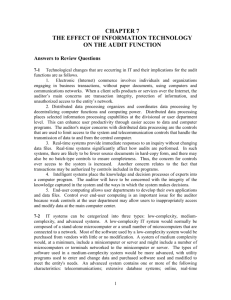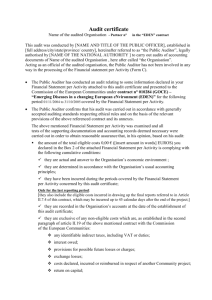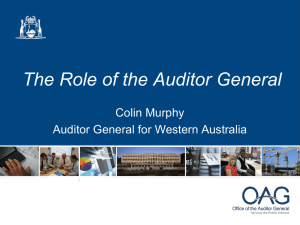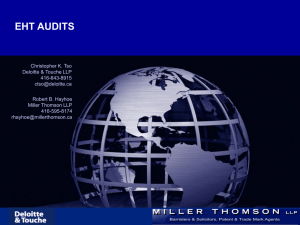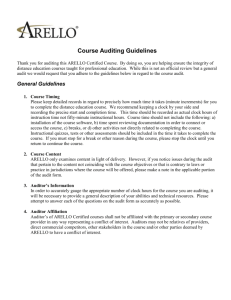Mr. Ky Sophan_Internal Audit Roles
advertisement
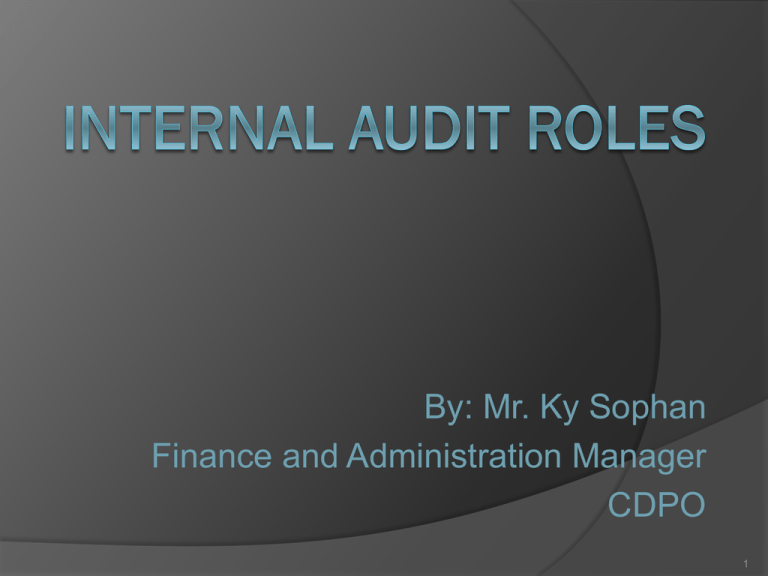
By: Mr. Ky Sophan Finance and Administration Manager CDPO 1 Contents: 1. What is the internal audit? 2. Internal Audit Structure in Organisation 3. Internal Auditor Roles and Responsibility 4. Different between Internal and External Audit Functions 2 1. What is the internal audit? Internal auditing is - an independent, - objective assurance and - consulting activity designed to add value and improve an organisation's operations. 3 1. What is the internal audit? It helps an organisation accomplish its objectives by: - bringing a systematic, - disciplined approach to evaluate and improve the effectiveness of risk management, control, and governance processes.” Financial Practical Guideline – page 36. 4 2. Internal Audit Structure in Organisation -Internal auditor report directly to the Audit Committee, - Audit Committee has role in hiring, firing, evaluating and compensating the Internal Auditor. - The Audit Committee’s increasing role with regard to the internal audit is being undertaken to help ensure the internal auditor’s "independence" and objectivity.1 5 2. Internal Audit Structure in Organisation Board of Directors Monitor, direct, delegates to & create Executive Team Audit Committee Reports to Internal Audit Team Source: Finance Working Group 6 3. Internal Auditor Roles and Responsibility 1. Evaluates and provides reasonable assurance on risk management, control, and governance systems 2. Reports risk management issues and internal controls 3. Provides recommendations for improving the organisation's operations 4. Evaluates information security and associated risk exposures 5. Evaluates regulatory compliance program 7 3. Internal Auditor Roles and Responsibility 6. Evaluates the organisation's readiness 7. Maintains open communication with management and the audit committee 8. Teams with other internal and external resources 9. Engages in continuous education and staff development 10. Provides support to the organisation’s anti-fraud programs. 8 4. Different between Internal and External Audit Functions INTERNAL AUDITOR Organization’s independent employee Serves needs of the Organization Reviews all operations and controls in an organization for efficiency, economy, and effectiveness EXTERNAL AUDITOR An Independent Contractor Serves third parties Reviews on financial statement, operational compliance 9 4. Different between Internal and External Audit Functions INTERNAL AUDITOR Prevention of fraud in any form or extent in any activity audited EXTERNAL AUDITOR Independently concerned with the prevention and detection of fraud in general, but is directly concerned when financial statements may be materially affected Independent of the Independent of management activities audited, but is and the board of directors both ready to respond to the in fact and in mental attitude needs and desires of all elements of managements Review activities Reviews records, supporting continually financial statements periodically --- usually once a 10 11



